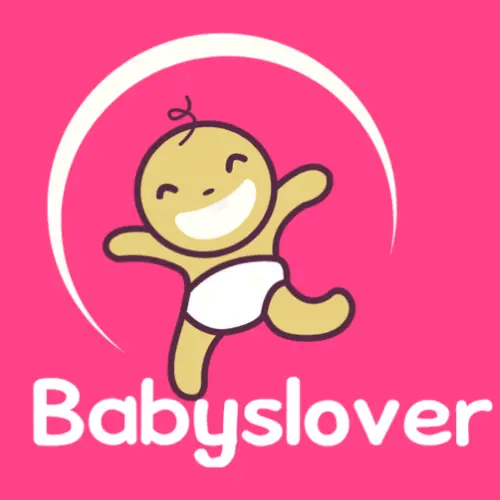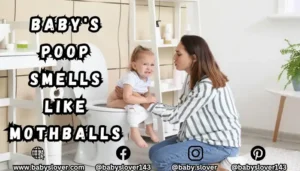As a parent, you get used to the typical smells that come with changing toddler diapers. But when you notice your toddler’s poop smells oddly like mothballs, it can definitely raise some alarms. You may be wondering, “Why does my toddler’s poop smell like mothballs?” This strange mothball-like odor is not normal for your toddler’s poop and signals some kind of underlying issue.
But don’t worry we will look at the all possible reasons why your baby’s poop smells like mothballs, what treatment options are available, and when you must see a pediatrician.
To better understanding this strange symptom. You can read my article further,in which you will get right answers to all the questions related to the smell of mothballs in your child’ poop.

Contents
- 1 Why My Baby’s Poop Smells Like Mothballs?
- 2 What Could Be Causing My Toddler’s Poop to Smell Like Mothballs?
- 3 What is the treatment for a baby’s smelly poop?
- 4 What to do if baby’s Poop Smells Like Mothballs?
- 5 When Should I Consult a Pediatrician About My Toddlers Bowel Movements?
- 6 Related Frequently Asked Questions
- 7 Conclusion On Poop Smell Like Mothballs
Why My Baby’s Poop Smells Like Mothballs?
It’s not normal for your toddler’s poop to smell like mothballs. This distinct odor is usually caused by chemical compounds found in mothballs that have entered your child’s system in some way.
The most common causes include:
- Dietary intake: Consuming foods with high sulfur content like cauliflower, broccoli, eggs, red meat, milk, and legumes can make poop smell like mothballs. This is because sulfur in these foods gets converted to hydrogen sulfide gas.
- Medication side effects: Certain antibiotics like Augmentin and amoxicillin can cause such poop odor in some children. Anti-seizure meds and laxatives containing polyethylene glycol may also lead to it.
- Metabolic disorders: Inability to digest proteins fully can result in smelly stools. Conditions like cystic fibrosis, celiac disease and lactose intolerance may be to blame.
- Foreign object ingestion: If your toddler swallows a mothball by accident, their poop will smell like naphthalene. Seek emergency care right away in such a case.
What Could Be Causing My Toddler’s Poop to Smell Like Mothballs?
There are a few possible medical reasons why your toddler’s poop gives off an odor like mothballs:
- Malabsorption issues: Problems absorbing fats, proteins or sugars from food can lead to smelly and frothy poop. Causes include celiac disease, cystic fibrosis, and pancreatic insufficiency.
- Infection: Bacterial infections from salmonella, C. difficile, giardia etc. may produce foul-smelling poop. Viruses like rotavirus can also change stool smell.
- Food sensitivities: Allergies or intolerance to milk, soy and wheat can affect digestion and bowel movement smell. Lactose intolerance is a common culprit.
- Excess gas and constipation: Buildup of intestinal gas from difficulty passing stools normally can make poop smell worse. Stool gets backed up and bacteria act on it.
What is the treatment for a baby’s smelly poop?
Here are some ways your doctor may treat smelly poop resembling mothballs in babies:
- Identify and address underlying cause: Testing for food allergies, infections, cystic fibrosis etc. based on other symptoms can reveal the reason for odor. Treating the condition will resolve it.
- Change diet: Removing gassy foods, dairy, gluten, soy or high sulfur items from your baby’s diet under medical guidance may help. Probiotic supplements can aid digestion.
- Medications: Antibiotics for infections, laxatives for constipation, enzymes for malabsorption issues may be prescribed. Discontinue unnecessary meds if causing odor as side effect.
- Increase fluid intake: Keeping your baby well hydrated, especially if constipated, can ease bowel movements and make poop less smelly. Offer more breastmilk or formula.
- Frequent diaper changes: Changing soiled diapers often prevents poop from sitting on skin and bacteria from multiplying, reducing odor. Use barrier cream to protect skin.
What to do if baby’s Poop Smells Like Mothballs?
If your infant’s poop has a pungent mothball-like smell, here are some tips while you consult a pediatrician:
- Don’t panic but call your doctor to discuss this unusual symptom. Describe the odor clearly.
- Check if your baby swallowed or came in contact with any mothball products and report this.
- Review any new foods, medications or supplements you’ve introduced recently.
- Monitor for other symptoms like vomiting, diarrhea, fever or blood in stool.
- Consider any family history of metabolic or digestive disorders.
- Note the color, consistency and frequency of smelly poops. Collect a sample if asked by your pediatrician.
- Avoid giving your baby any new foods or over the counter meds before your appointment.
- Make sure your baby stays hydrated by nursing or bottle-feeding often.
- Use fragrance-free gentle wipes and barrier cream to clean and protect your baby’s skin during frequent diaper changes.
When Should I Consult a Pediatrician About My Toddlers Bowel Movements?
Consult your pediatrician if your toddler’s poop smells like mothballs along with any of these signs:
- Very loose, watery or bloody stool
- Persistent diarrhea lasting over 2 days
- Forceful projectile vomiting
- Fever over 100.4°F (38°C)
- Loss of appetite or trouble eating
- Abdominal pain or distension
- Weight loss or poor weight gain
- Signs of dehydration like reduced urination, crying without tears etc.
Read Also Is Drinking Vitamin Water Safe While Pregnant? Complete Guide
Sudden foul-smelling stools, especially with other symptoms, could indicate an underlying intestinal infection or condition requiring prompt medical evaluation. Don’t hesitate to call your pediatrician.
Related Frequently Asked Questions
When should I be concerned about my toddler’s poop?
You should be concerned if your toddler’s poop has an unusually foul or strange odor like mothballs, if it is an abnormal color, if there is blood or mucus present, if your child is constipated or has diarrhea, and if the poop changes significantly from their normal. Consulting a pediatrician is recommended.
Is It Normal for a Toddler’s Poop to Change Odor Occasionally?
It is common for a toddler’s poop to have some odor variation based on their diet. But a toddler’s poop suddenly smelling like mothballs, or any other very foul unusual odor, is not normal and should be evaluated by a doctor.
Are There Any Home Remedies for Unusual Toddler Poop Smells?
There are no proven home remedies for abnormal poop smells like mothballs in toddlers. It’s important to consult a pediatrician to determine the underlying cause instead of trying to treat it yourself at home. The doctor will advise on any dietary changes, medications or supplements needed.
Can a Toddler’s Diet Really Affect the Smell of Their Bowel Movements?
Yes, a toddler’s diet can significantly impact the smell of their poop. Foods like cruciferous vegetables, eggs, and meat that contain sulfur can make poop smell bad. Dairy and gluten intolerance can also cause foul odors. But a mothball smell is not typical and needs medical evaluation.
Conclusion On Poop Smell Like Mothballs
while smelly poops are common when potty training toddlers, a poop smell resembling mothballs is not normal for your little one. This unusual odor likely signals some kind of underlying health issue that needs medical attention. Possible causes can range from a food intolerance to a gut infection.
Consult your pediatrician if your toddler’s poop smells like mothballs – don’t try home remedies yourself. With proper diagnosis and treatment, you should be able to resolve the mothball smell and any associated symptoms. Stay alert to any abnormal changes in your toddler’s poop.
Frequent smelly or malformed stools in a toddler can be a sign of a more serious condition. Work closely with your toddler’s doctor and follow their advice to get your child’s bowel movements back on track.

